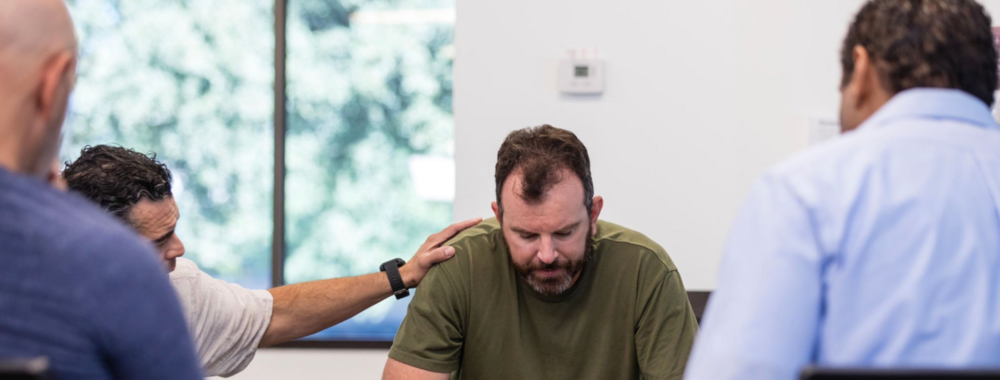A Vivitrol treatment program is very beneficial in helping men and women get through their withdrawal symptoms with a significant reduction in relapsing.
Vivitrol treatment is part of a medication-assisted treatment program that coincides with therapy through an inpatient or outpatient treatment program. Aetna and other insurance companies include Vivitrol treatment as part of their substance abuse insurance coverage.
At Colorado Medication-Assisted Recovery, our medication-assisted treatment includes Vivitrol treatment covered by Aetna and other insurance providers. Our facility is in-network for Aetna, and our seamless verification process will give you an accurate and easy-to-understand summary of your coverage.
Is Vivitrol Treatment Covered by Aetna?
Yes, Vivitrol treatment is covered by Aetna as part of their substance abuse and mental health treatment benefits. Aetna’s coverage includes:
- Detox programs
- Residential/inpatient treatment
- Partial hospitalization programs
- Intensive outpatient programs
- Continuing care and alumni programs
At CMAR, we are in-network with Aetna, and our seamless verification process ensures you receive an accurate and easy-to-understand summary of your coverage. Many of our patients have zero out-of-pocket costs, making recovery accessible and affordable.

What Is Vivitrol Treatment?
Vivitrol is the brand name for naltrexone, an opiate antagonist that effectively treats addiction to opioids and alcohol. It affects the same cell receptors that release dopamine and other neurotransmitters that are responsible for euphoria and pain relief. Instead of flooding your body with dopamine, it blocks the release and stops the euphoric feeling and breaks your body’s reliance on your substance of choice.
Vivitrol is an injection that is given once a month as part of a medication-assisted treatment program. This program uses a mix of medications to help reduce withdrawal symptoms and cravings for patients participating in an addiction treatment program. The medical staff will administer your medication and monitor you for any adverse reactions.
Medical staff will continue to update your medication to give you the maximum benefits with minimal side effects. Inform them if you have ever had liver or kidney disease or hemophilia, as Vivitrol may not be safe for you. You should not start Vivitrol treatment if:
- You have used opioids within the last 7–14 days
- You’ve used methadone or buprenorphine in the last 14 days
- You have used medicine to treat a cough, cold, or diarrhea in the last 7–14 days
At Colorado Medication Assisted Recovery, our medical staff will determine the right medications to help with your addiction recovery. Our medication-assisted treatment aims not to replace one drug with another but to have you 100% drug-free by the end of your program.
How Vivitrol Compares to Other MAT Options
While there are several MAT options available, Vivitrol stands out for its unique benefits:
- Vivitrol vs. Suboxone: Suboxone contains buprenorphine, which activates opioid receptors, while Vivitrol blocks them entirely. Vivitrol is ideal for individuals who want to avoid any opioid activation.
- Vivitrol vs. Methadone: Methadone is a full opioid agonist and requires daily visits to a clinic, whereas Vivitrol is non-addictive and administered monthly.
- Vivitrol for Alcohol Addiction: Unlike other MAT options, Vivitrol is also FDA-approved for alcohol use disorder, making it a versatile treatment choice.

FAQs About Vivitrol Treatment
1. How long does Vivitrol stay in your system?
Vivitrol’s effects last for about one month, which is why it’s administered as a monthly injection.
2. Can Vivitrol be used for alcohol and opioid addiction?
Yes, Vivitrol is FDA-approved to treat both alcohol use disorder and opioid dependence.
3. What happens if I miss a Vivitrol injection?
If you miss an injection, contact your healthcare provider immediately to reschedule. Delaying treatment may increase the risk of relapse.
4. Is Vivitrol safe for pregnant women or individuals with chronic health conditions?
Vivitrol may not be safe for everyone. Before starting treatment, inform your healthcare provider about any medical conditions or medications you’re taking.
Take the First Step Toward Recovery
Vivitrol treatment is a powerful tool for overcoming addiction and achieving long-term sobriety. At CMAR, we’re committed to providing safe, effective, and affordable Vivitrol treatment covered by Aetna and other insurance providers


















